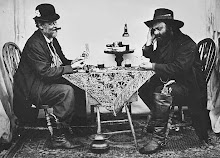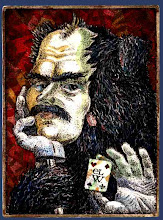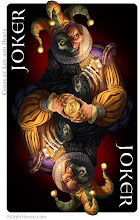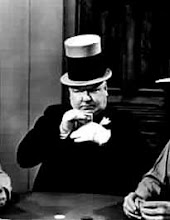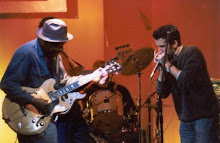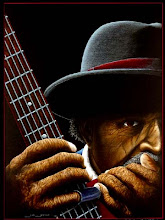I've played at most of the card rooms in the LA area; Hollywood Park, Hustler, The Bike, Commerce, even Crystal.
If I had to rank them I'd probably give Commerce Casino a slight edge over The Bike, and then Hustler over Hollywood Park then finally Crystal Casino. Haven't played at Normandie yet, but from what I hear, I would put it slightly over Crystal.
I've been looking for more Sit and Go games and Omaha games, in my price range, and heard they had some at Hawaiian Gardens Casino. Hollywood Park advertises Sit and Go's but I have yet to see one as they keep saying they don't have enough dealers. The Bike and Commerce have them during their big tournaments, but not normally. None of the other local casinos offer them.
I tried a couple of the Sit and Go tournaments at Hawaiian Gardens. They have a couple of formats. A 6 max that pays the top 2. A 9 to 10 handed single table that pays half the table and a 3 table shoot out.
They are all turbo games, 10 min rounds, fast and more gamble in them than skill, but a fun game. I played my first shoot out a week or so ago, busted out midway in a it.
This week I wanted to try the 6 max, but it wasn't starting for another couple of hours, but they had a single table Sit and Go for $175 which payed the top two. Again it's a turbo, 10 min rounds and 1500 in chips, so it's fast. Threw away a couple of marginal hands, out of position, didn't really get any playable hands that weren't already family pots by the time it got to me. Finally got a monster, AA, two from the UTG position, I'm kind of short stacked, only about 12 big blinds, so I'm sandwiched anyway, so I just called a min raise (my first mistake), and two others called. There's 5 in the pot and the flop comes like 9,5,4, and I raise the pot (my second mistake). The cutoff raises all-in, he just barely has me covered, everyone else folds, I call, (my final mistake). The turn and river are no help to either of us, he shows 44 and cracks my AA and I'm out.
Chance are if I would have gone All-in pre-flop, he would have called anyway since we were both needing chips.
So I look around at some of the cash games going on. Most look like they are good games. I like No Limit and Pot Limit and Omaha 8, but my favorite is Pot Limit Omaha. Most of the local casinos don't' have one that fits my pocket book, but they have one here with a $100-$200 to buy-in and $1-$2 blinds. They had a seat open so I jump in.
OK, they are playing $2-$4 blinds because they all decided to raise them, but if I only wanted $1-$2 blinds they would accommodate Not my favorite stack ratio now that it's instantly depleted 50$, but I decide to play at $2-$4. They have some real action players, so my normal game should do quite well. In fact I won the first hand I played and got a fair sized pot. Played a couple of other hands along the way, but didn't get any favorable flops. Some of them liked to run it twice in an All-in bet, not my cup of tea, don't really see the point of a 50% tie over a 33% win ratio. The game was going ok for an hour or so, a couple of players busted out and bought back in and a couple of players busted out, left, and others joined.
One of the players who joined was another old fogy. Most of the players know him, as the players here often know each other. This one didn't want to play $2-$4, so after hemming and hawing about it, they changed to $1-$2, but wanted a $5 bring in on the next bet or call, which was kind of OK, but he didn't really sound too happy about it.
The game was kind of up and down as far as action now. The action players would raise pre-flop almost every hand, I won a few and lost a few, but still liked the game. The only misstep was when I raised hands instead of calling post flop without the nuts. I fixed that leak after my stack was down 50%. Some of the players were starting to cash out or bust out and no new players were on the board, so after we were down to 4, the table broke. A couple of the players, including the old fogy, decided to go to the Commerce, said they were going to play a proposed PLO game, they already had some signed in as "interested". Just in time for the Sit and Go Shootout here. I came out with a slight profit in the Omaha game.
This will be one of my games to play in the future.
The Shootout was looking kind of slim, but Tina, the tournament boss said it should fill up nicely. About 10 minutes after it was supposed to start, each table had only about 4 to 5 sitting, looking kind of ify, but after about 10 min, we filled up. One of the players at table 1 had won the 2 earlier Sit and Go's, was getting kind of loaded, and busted out early. I was in about the middle of the pack at table 2, had 5 left and 2 were already short stacked. I decided not to play anymore hands to get to the final table, but I got a couple of good ones, one was Ten/Ten, won that round, another KQ, flopped the Q, won that one. Finally the 2 short stacks busted out and we broke for the final table.
Stacks were reformatted to the beginning of the tournament, we started at $1500 with $25/$25 blinds and 10 min rounds again. I must have gotten AK about 4 times in the game, won some pots. We were down to 5 players again and I was 2nd in chips. Busted one player out and now the chip leader, though not by much. Another player busted out and we were down to 3. Forth place paid $110, so now I was in the money and 3rd place paid about $350. Another player busted out and we were down to 2 with the chip lead see-sawing back and forth due to the blinds increasing. Each hand was more of a gamble and there really no skill going now. Most of my hands have been good, at least one face card with a middle kicker, only had to throw one low hand away, 2-3ns. Every hand now is All-in and after a couple rounds where my opponent folded, I finally won and came in 1st, paid $656, not bad for a $70 entry, which helped set off the $175 I lost in the first Sit and Go.
I think the PLO games at Hawaiian Gardens will be financing my Sit and Go's, and some of the other deep stack tournaments I plan on playing.





















